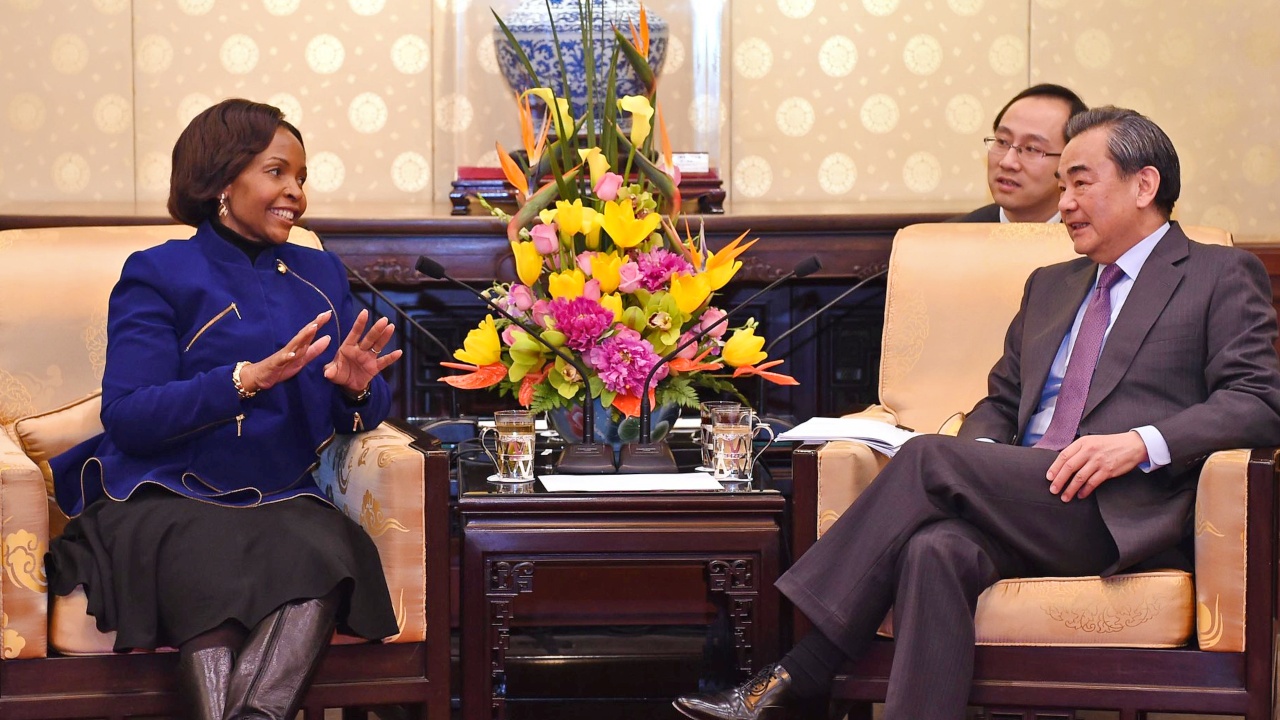Achille Mbembe argues that obscenity is an essential characteristic of domination within postcolonial regimes. But what about contemporary African society? Professor Wale Adebanwi draws on examples from Central, Southern and West Africa to reflect on Mbembe’s concept of the “carnality of power”, exploring how political power can carnalise social relations and make sense of subordination.
No other man in Africa’s recent political history has arguably exemplified power’s excess and lack of proportion, including the alliance between power and sex (and money) in its extremity, more than the late President Mobutu Sese Seko of Zaire (now the Democratic Republic of Congo). Mobutu was the archetypal representation of a man of power who, as Achille Mbembe suggests, ignored all social, moral and juridical rules and prohibitions surrounding sexual relations. He had a “violent pursuit of wrongdoing to the point of shamelessness”.
Born Joseph-Désiré Mobutu, the name he assumed in 1972, Mobutu Sese Seko Kuku Ngbendu wa Za Banga, was an ode to naked power – in more senses than one. The name’s metaphoric translation means: “the all-powerful warrior who, because of his endurance and inflexible will to win, will go from conquest to conquest leaving fire in his wake”. Such a name signals his political power with its own innuendos. The literal translation that Zaireans embraced was “The cock that leaves no hen unruffled” or “Mobutu, the mighty rooster who leaves no hen untouched” or “The cock who goes from hen to hen knowing no fatigue”. The differently rendered names share an allusion to his enormous carnal power.
Indeed, the “mighty rooster” left only a few “hens” unruffled. For Mobutu, copulation was a license or a will to power – or even a strategy. He fathered 21 children by six women, two of whom he married: Marie-Antoinette and Bobi Ladawa. A third partner, Kosia Ladawa, was his mistress and the twin sister of his second wife, Bobi. The fourth and the fifth in his harem were not well known, while the sixth remained anonymous.
As David van Reybrouck revealed in Congo: The Epic History of a People, on trips across the country Mobutu granted himself the droit de cuissage (right to deflower) “virgins” who were offered by local chiefs. He was also reported to have collected the secrets of his cabinet ministers by sleeping with their wives, as Adam Shatz has revealed. Slavoj Žižek, the Slovenian philosopher, could have had Mobutu in mind when he described former Italian Prime Minister Silvio Berlusconi as “a clown without dignity”, and one who “systematically undermine[d] the basic dignity associated with being the head of state”. Only the former leader was worse. Mobutu’s public life was one of habitual, all-consuming and relentless efforts to secure what Ann Laura Stoler calls “unfettered sexual access” to all and any female that he desired.
The relation between physical and political virility
In The Carnality of Power, I attempt to elaborate on the intellectual vista that Achille Mbembe opened in the study of postcolonial formations. I focus on not only how power literally penetrates the body but the implications of such penetrations and the transgressions often underlying them for the uses and abuses of power, which mark or damage the body politic. Taking provocation from Mbembe’s essay, “Provisional Notes of the Postcolony”, and alluding to examples from West, Central and Southern Africa, I argue that the carnality of power captures power’s ability to (over-)carnalise political and social relations. It also emphasises how the (often transgressive) relationships instantiated by sex and sexual relations between powerful people and those subordinate to them – including the solicited, unsolicited, desired and/or undesired – can be used to analyse relations of domination within and beyond Africa’s social and political formations.
In examining why and how physical virility is critical, in some contexts, for the political virility of men of power, there is no shortage of African cases. These include the former prime minister of Zimbabwe, Morgan Tsvangirai, the former President of South Africa, Jacob Zuma, the former president of Nigeria, Olusegun Obasanjo, Nigeria’s late military dictator, Sani Abacha, and the late President of Togo, Gnassingbé Eyadéma.
Tsvangirai reportedly sought spiritual help from an (in)famous Nigerian prophet for “erectile dysfunctional disorder”, taking an “ailment” that was popularly believed to have led to the end of his marriage to Zimbabwean politician Elizabeth Macheka. Before this ailment, the UK’s Guardian pointed out that he “has made it woefully easy for his enemies to portray him as a sex-crazed maniac”, added that in his bid to be president “Morgan Tsvangirai’s messy love life is a gift to his enemies”. Such was the nature of Tsvangirai’s sexual transgressions that the politician and academic Jonathan Moyo accused Tsvangirai of approaching “every issue with a shut mind and every woman with an open zip”.
In Zuma’s case, I point to how Zapiro’s (in)famous cartoon, in which Zuma was about to metaphorically sexually assult “Lady Justice”, not only seems to condense the long-running public discourses of lechery around Zuma but also illustrates the relationship between vulgarity and hilarity. Zuma is a polygamist who has been married six times, with children from multiple women, and was reported to have had sexual relationships with other women, including one that led to allegations of rape, for which he was acquitted.

As for Obasanjo, he did not even bother to deny the allegation by his first son that he was having an affair with his wife (Obasanjo’s daughter-in-law) which led to the dissolution of the marriage. Also, among many other rumours of his amorous relationships, a cable from the American consulate in Nigeria, which was revealed by Wikileaks, alleged that Obasanjo was sleeping with the female Speaker of the Federal House of Representatives, Patricia Etteh. The latter dismissed journalists who sought her reaction by stating that “I don’t bloody care. I can have romantic interest with anybody. I am free to romance anybody.” As for Abacha, the popular belief in Nigeria – as also described in diplomatic circles – is that his proclivity for paramours eventuated in his death “on top” of a “prostitute”. On his part, such was Eyadéma’s proclivity for sleeping with all the women around him, particularly other people’s wives – including the wives of his ministers – that he was known as the “husband of all husbands”.
What carnal power means in the postcolony
These examples of power’s “taste for lecherous living” and betraying power’s “total lack of restraint” can be used to further discuss what carnal power means in the postcolonial state. I extend Mbembe’s insight in three ways: I examine licit and illicit sexuality in understanding the excess of power; I add homosexual relationships to the account of how the carnal is useful for reflecting on power and the powerful in Africa; finally, I point to the fact that those who hail the African “mighty roosters” could be laughing at and/or with power in the excess of its buffoonery.
There is also an affinity between obscenity and hilarity – as expressed in the case of Zuma – and the ways in which the cojoining of the two in official cultures illuminates the nature of power in Africa, particularly because obscenity and grotesquery are critical characteristics of postcolonial regimes of domination and subordination. Relatedly, there is the question of sexual excess and the consequences of lechery at the highest level of political organisation.
Central to my engagement with carnal power is the concern that the erotic of power (and political life), or the eroticism of power, is too critical to the dynamics and enactment of political power in the postcolony (and beyond) to be disregarded or discarded. This is shown in the many holders of (unaccountable) power in their passion for the unholy pact of power and sex.
The profane marriage of power and sex in public life is, however, not exclusive to Africa. In the uber-postcolony, the US President Donald Trump is the most compelling example. This is evident in the fact that neither his past public comments in which he eroticised his own daughter, Ivanka, nor the repugnant comments on the potentially criminal violation he claimed to visit on women entranced by his celebrity, adversely affected his image, adoration and even electoral value among millions of his supporters. The complicity between the powerful and the powerless that Mbembe notes plays out sharply in the terrain of power and sex. If this is true of societies with deep institutionalisation such as the United States, the experience of societies with low institutionalisation in Africa presents opportunities for further reflections on the nature of the profane union of power and sex.
Perhaps we need to inaugurate a new area of postcolonial studies, what I will call political sexology, that will pay greater attention to the study of the copulation of the political and the carnal. This is a focus that goes beyond and deeper than sexual politics in analysing how the fundamental project of personal[ised] power foregrounds the pursuit of sexual pleasure: power as carnal knowledge or, in Foucauldian terms, power/carnal knowledge.
Photo: Marie-Antoinette and President Mobutu Sese Seko in Kinshasa on April 20, 1977. Available via Wikmedia: This file has been identified as being free of known restrictions under copyright law, including all related and neighbouring rights.





